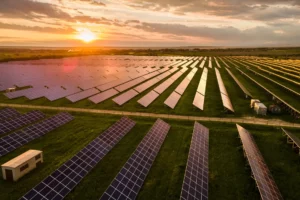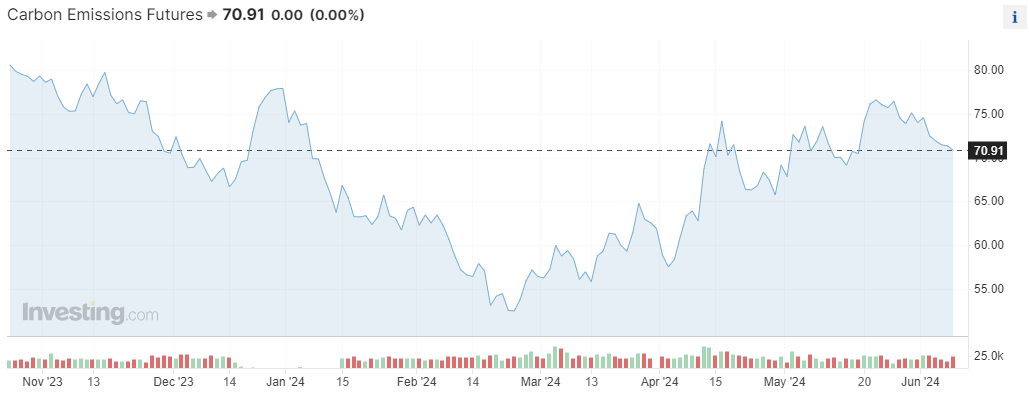The link between extreme weather and climate change has never been clearer
- Climate change
Advances in climate science have made it possible to obtain concrete data on how climate change is affecting extreme weather events. This progress is leading to increasingly accurate and reliable results that help us better understand the impacts of climate change. Climate fingerprints not only help us to better interpret past events, but also to make predictions to avoid future disasters.
The purpose of climate attribution
Climate attribution aims to highlight the extent to which greenhouse gases from the burning of fossil fuels affect the weather patterns experienced by humans. “We want everyone to understand how human activities affect the intensity and frequency of extreme events,” says Joyce Kimutai, a climate scientist at the London-based non-profit organisation World Weather Attribution (WWA), which is leading this research.
“We are not saying that climate change caused a particular extreme weather event. We are saying that it is present and the extent to which climate change has altered it.” The aim of research like this is to help people better understand that climate change is not a distant problem, but has a direct impact on our daily lives. Through climate attribution, people can become more aware of their own environmental impact and its consequences, which can help them to live a more sustainable lifestyle.
Impact of extreme weather events
Over 400 extreme weather events have been studied in recent years to determine the extent to which they have been affected by climate change. For example, Climate Central, a non-profit organisation that works with WWA, found that last summer’s heat wave in the southwestern United States was five or more times more likely to have been caused by climate change.
Such extreme events not only have a short-term impact on affected communities, but also have a long-term impact on quality of life and the economy. Research has also shown that climate change is increasing the frequency and intensity of such events, which will pose further challenges to society.
The economic consequences of such events are also significant, as the costs of recovery and reconstruction place huge burdens on governments and communities. In addition, the psychological effects of extreme weather are significant, as those affected often experience stress, anxiety and trauma.
Climate change has exacerbated heat waves, floods and storms
Complex weather events are triggered by many environmental factors, including high and low pressure systems, jet streams and others. Warmer air and ocean surface temperatures have long been known to play an important role in exacerbating recent natural disasters.
Scientists have calculated that over the past 20 years, the combined rainfall of the six major hurricanes that have hit the Atlantic coast – Katrina, Irma, Maria, Harvey, Dorian and Florence – has been four to 15 times more intense (depending on the hurricane) than it would have been if the Earth had been cooler.
These hurricanes have caused more than $500 billion in damage and enormous human suffering. Climate change has not only increased the intensity of hurricanes, but also their frequency, which is a further cause for concern. Increased temperatures also increase the energy of storms, making them more destructive and unpredictable in the future.
Understanding and managing the impacts of climate change is essential to prevent future disasters.
Understanding the processes and raising awareness
Scientists are now working to examine and analyse these climate fingerprints days or weeks after an extreme weather event while people are still monitoring the event. “Quickly connecting the dots between events and greenhouse gases helps people realise that climate change is not a problem for our children and grandchildren. Significant things are happening right now,” says Michael Wehner, principal investigator at Lawrence Berkeley National Laboratory.
This rapid response will allow people to be immediately aware of the impacts of climate change and will spur them into action. Disseminating such information will help people to better understand the complex and urgent problem of climate change. Timely communication is key, as up-to-date information and analysis can have a greater impact on public opinion and policy-making. People need to understand that climate change is already affecting their lives and that delaying action will only exacerbate the situation.
The challenges of attribution science
Attribution science relies on climate models that show the impact of greenhouse gases on the planet, which are then combined with actual weather information from ground stations and weather satellites and other inputs. Statistical techniques from epidemiology are also used, as this field also analyses the relative contribution of different factors, such as smoking habits, family history and obesity, to the risk of heart disease. Heat waves are easier to calculate than hurricanes and droughts are the hardest, says Kimutai.
In the case of drought, you need to know not only how much rain has or has not fallen, but also soil moisture levels, air evaporation rates and other data. In many parts of the world, especially in underdeveloped countries, these current and historical data are not available. The lack of data and the complexity of extreme events are a major challenge for researchers. Without accurate collection and analysis of such data, it is difficult to draw reliable conclusions about the impacts of climate change.
But attribution science is evolving and researchers are committed to better understanding and communicating the complex impacts of climate change.
(source: natgeo.com)
—
Energy price changes in May and June 2024.
HUDEX BL 2025
2024.01.01-2024.06.10
2023.01.01-2024.06.10
TTF Winter 24
Co2:

Case study for EEOS audit – Demountable thermal insulation
Introduction The purpose of the EEOS audit (EKR the hungarian equivalent of EEOS - Energy Efficiency Obligation Scheme) is to examine whether an investment carried...

Hungarian Gas storage capacity targets met; Renewables take the lead
The Hungarian gas storage target has been well exceeded - The 65% target for 1 July Hungarian gas storage capacity target well exceeded , as...

Information on energy efficiency 2024. 07.
Mandatory quality requirements for electricity supply met again in 2023 - The Hungarian Energy and Public Utility Regulatory Office (MEKH) has assessed the quality of...





